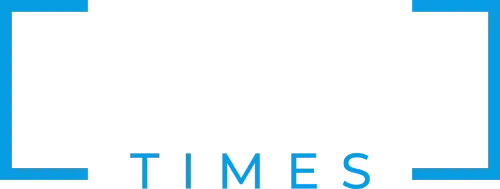Somali News
Top AU official optimistic about new Somalia peacekeeping mission

Mogadishu, 1 March 2022—Following three days of high-level engagements with government officials, civil society members and Somalia’s international partners, the African Union (AU) Commissioner for Political Affairs, Peace and Security has said that the new AU mission will focus on stabilization and state building processes but with a clear end goal in sight.
Ambassador Bankole Adeoye was addressing the media in Mogadishu on Monday at the end of his three-day visit to Somalia.
“ATMIS is 100 percent aligned with the Somalia Transition Plan. This implies that the strategy of the Government of Somalia and (objective of) ATMIS will be aligned. This is the number one factor that will make a difference,” Ambassador Adeoye stated.
The AU and the Federal Government of Somalia have adopted a roadmap to replace the African Union Mission in Somalia (AMISOM) with a new mission to be called the African Union Transition Mission in Somalia (ATMIS), subject to authorisation by both the AU Peace and Security Council as well as the UN Security Council.
“This time around, Somalia’s plan is actually front and centre of ATMIS, with the full support of the European Union and the whole gamut of the United Nations,” the AU Commissioner added.
He explained that the new mission will be multi-dimensional, with clear timelines focusing on stabilization and state building processes but with a clear end goal in sight.
“ATMIS will have a mobile and agile force that can rapidly degrade, eliminate and decimate terrorists or armed groups that are making life difficult for the good people of Somalia,” he said.
“ATMIS will have a character of a mission with an end goal, and that end goal is to transfer the full responsibilities of security to the federal Government of Somalia.”
On Sunday, Ambassador Adeoye held meetings with the President of Somalia, Mohamed Abdullahi Mohamed ‘Farmaajo’; the Prime Minister, Mohamed Hussein Roble; the Minister for Foreign Affairs and International Cooperation, Abdisaid Muse Ali and Minister of Defence, Abdulkadir Mohamed Nur.
The top AU official said that the adoption of the Concept of Operations (CONOPs) and the joint proposal in early February for the establishment of a new mission in Somalia by the AU and the Federal Government of Somalia and other key stakeholders was a consultative and exhaustive process guided by a set of principles that included the respect for the sovereignty and territorial integrity of Somalia, national ownership and leadership by the Federal Government of Somalia and adherence to the spirit of political dialogue, inclusivity and reconciliation.
“What I am taking away from here is that the African Union and the Government of Somalia remain within the vision and mission of the African Union to build an integrated, prosperous and peaceful continent,” Ambassador Adeoye said.
During his visit, he also met with representatives of Troop and Police Contributing Countries, to whom he paid tribute for AMISOM’s key achievements in the last 15 years, including the recovery of vast territory from the control of Al-Shabaab and the creation of favourable conditions for state- building and the re-establishment of governance structures through the federal system.
SOURCE: AMISOM PUBLIC INFORMATION
Health
Attention, Minnesota! Measles Outbreak Alert

Minnesota –
The Minnesota Department of Health (MDH) confirmed measles outbreak. This highly contagious virus can be serious, especially for young children and those with weakened immune systems. Here’s what you need to know:
![]() What is Measles? A viral infection that causes a high fever, cough, runny nose, and a characteristic rash. It can lead to complications like pneumonia and encephalitis.
What is Measles? A viral infection that causes a high fever, cough, runny nose, and a characteristic rash. It can lead to complications like pneumonia and encephalitis.
![]() Symptoms to Watch For: Fever, cough, runny nose, and a red, blotchy rash that typically starts on the face and spreads.
Symptoms to Watch For: Fever, cough, runny nose, and a red, blotchy rash that typically starts on the face and spreads.
![]() Prevention: The best defense is vaccination. Ensure you and your family are up-to-date with the MMR (measles, mumps, and rubella) vaccine. It’s safe and highly effective.
Prevention: The best defense is vaccination. Ensure you and your family are up-to-date with the MMR (measles, mumps, and rubella) vaccine. It’s safe and highly effective.
![]() If You Suspect Infection: Contact your healthcare provider immediately and avoid public places to prevent spreading the virus.
If You Suspect Infection: Contact your healthcare provider immediately and avoid public places to prevent spreading the virus.
Your vigilance can help protect our community. For more information and updates, check with local health authorities and healthcare providers.
Stay safe and informed! https://www.health.state.mn.us/diseases/measles/index.html
Somali News
Severe Drought in the Horn of Africa

Minneapolis, July 20, 2022 –
The Horn of Africa experiences two rainy seasons per year. The timing varies across the region,
but rains broadly fall from March to May. The lack of these rains in 2022 has been felt
particularly in equatorial parts of the Horn of Africa region, where the long rains contribute 70% of the annual total rainfall. Currently, 16.7 million people are projected to be in crisis (UNOCHA) or worse levels of high acute food insecurity solely due to the drought in The Horn of Africa.
Four consecutive rainy seasons have failed since late 2020, a climactic event not seen in the
last 40 years. This disaster is expected to be worse than the famine in 2011, when 260,000
people died in Somalia alone, 50% of those people being children under the age of 5.
Our Executive Director, Mohamed Idris, and Program Director, Jordan Greene, had the
opportunity to visit the Horn of Africa in June 2022. While in The Horn, they were able to witness firsthand the effects of the drought. It became apparent to Idris that the humanitarian situation in the horn of Africa region is alarming.
The latest Intergovernmental Panel on Climate Change report projects that global warming will negatively affect food systems in the region by shortening the growing season and increasing water stress. The combined population of Switzerland and Australia doesn’t add up to the 16.7 million people facing food insecurity in the Horn of Africa. The UNOCHA report further emphasized that the consequences of the prolonged drought conditions have extended to the loss of livestock, with 7 million deaths recorded so far. Another 22 million livestock are estimated to have been severely emaciated due to the drought.
The ongoing humanitarian crisis caused by the drought raises serious questions about future
food and water security in the Horn of Africa. The conditions have increased the workload for
women and female children who are responsible for providing water using donkeys or carrying it on their back; Access to water has increased to a walk between 3 – 5 miles each way. As a
result, female children drop out of school to assist their mothers with this burden.
ARAHA has launched a campaign to support families suffering from this drought. Our teams on the ground in the Horn of Africa allow ARAHA to know what supplies are most needed at this time and respond to the areas in the most need as fast as possible. These supplies include
rice/maize/wheat, cooking oil, evaporated milk, and water. According to our Program Director,
“We are able to distribute food baskets and non-food items for hundreds of drought-affected
families in The Horn of Africa. However, the needs are currently far beyond the resources we
have.”
ARAHA needs donations to continue providing immediate relief and aid to victims of
this disaster. The Executive Director of ARAHA urges donors to think about these families and
support ARAHA’s lifesaving work: “It’s a matter of life and death for these families. Let us save
families before it’s too late. ”
To donate, please visit www.araha.org/donate or text “ARAHA” to 44321.
If you would like more information about ARAHA’s current efforts in The Horn of Africa, please contact Jordan Greene, Program Director (jordan@araha.org), or Ashley Dial, Marketing Director (ashley@araha.org). To learn more about our relief campaign, please visit www.ARAHA.org.
About ARAHA:
ARAHA is a humanitarian non-governmental organization (NGO) that works in the Horn of Africa region, delivering essentials and developing opportunities. We have a diverse range of programs that brings life to our mission and adapts to the specific needs of each community in which it works. The organization aims to bring immediate relief to those in need throughout the Horn while simultaneously seeking to create the conditions for sustainable opportunity and self-reliance. In all programs ARAHA pursues, it seeks to responsibly enact its mission while delivering essentials and developing opportunities in communities across the Horn.
Somali News
ATMIS Donates Medicines and Food items to Dhobley General hospital
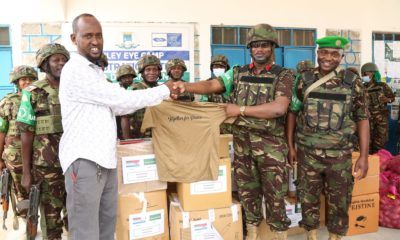
Dhobley, 9th July 2022—Troops from the Kenya Defence Forces (KDF) serving under African Union Transition Mission in Somalia (ATMIS), have donated an assortment of medical supplies and food items to Dhobley General Hospital.
ATMIS Deputy Sector Two Commander, Colonel Joel Maiyo, said the food donation was to help with feeding of patients, especially children admitted with severe malnutrition as a result of the ongoing drought. The medical supplies are to help the hospital in meeting the medical needs of patients.
“We came to Dhobley General Hospital to donate medicine and food to support all patients, especially children, women, and the elderly who are admitted to this hospital. Our mandate as ATMIS is to support the Somali people, and this includes supporting the Somali Security Forces in protecting and taking care of welfare of the population. This donation forms part of our civil-military cooperation (CIMIC) activities,” said Col. Maiyo.
Receiving the items, the Director of Dhobley Hospital, Mohamed Yusuf Hassan, called for more support from ATMIS and Somalia’s international partners to help alleviate the suffering of the vulnerable members of the community.
“We appreciate this timely donation, and it must be said that ATMIS has always supported us in times of need. This donation will help alleviate some of the challenges we face. On many occasions, ATMIS has helped us deal with serious medical cases that cannot be treated in our hospitals due to lack of specialist care. We have taken patients to the ATMIS hospital where they have been treated, and we appreciate that very much,” said the hospital director.
Beyond combat activities to degrade Al-Shabaab, ATMIS forces in Somalia undertake Quick Impact Projects, which are small-scale projects that address the basic needs of local populations. Some of the activities include drilling of boreholes, refurbishing hospitals, building schools and markets to help improve the lives and welfare of the local communities living under its areas of responsibility.
ENDS.
SOURCE: ATMIS PUBLIC INFORMATION
-

 Local News7 months ago
Local News7 months agoGovernor Walz Announces Minnesota Ranked as a Top State for Business
-
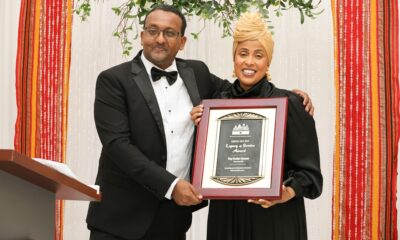
 Local News4 months ago
Local News4 months agoCelebrating Community: The Inaugural Samafal Gala at the Minnesota Somali Community Center
-
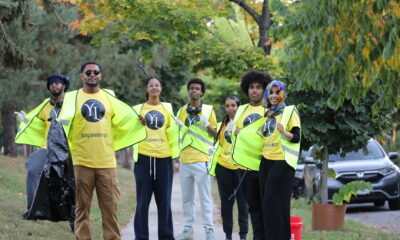
 Community5 months ago
Community5 months agoYouth Leader and Mentor: Mohamed Jama’s Fight for Change in Whittier
-
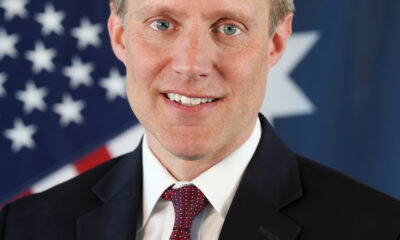
 Local News7 months ago
Local News7 months agoSecretary Simon Named President of the National Association of Secretaries of State
-

 Local News4 months ago
Local News4 months agoDuqa magaaladda Minneapolis Jacob Frey ayaa qorsheynaya inuu mar kale isu soo taago doorashada Duqa Magaaladda
-
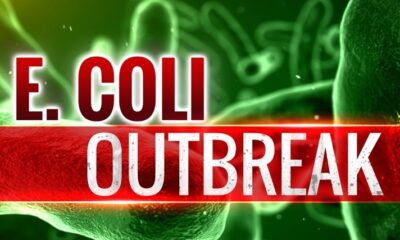
 Health3 months ago
Health3 months agoE. coli O157 infections linked to consumption of burgers from Twin Cities restaurants
-

 Videos4 months ago
Videos4 months agoContracting: Mastering the Basics and Beyond – Nov 13th
-

 Local News5 months ago
Local News5 months agoBCA Identifies man shot by Minneapolis police after firing AK-47 in Minneapolis apartment building
